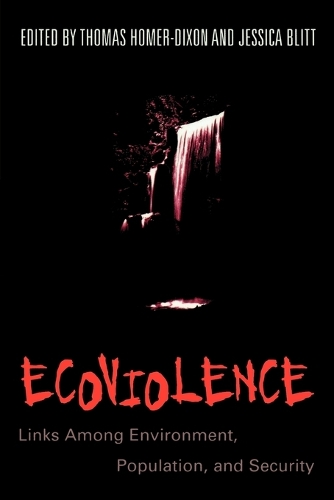
Ecoviolence: Links Among Environment, Population, and Security
(Paperback)
Publishing Details
Ecoviolence: Links Among Environment, Population, and Security
By (Author) Thomas Homer-Dixon
Edited by Jessica Blitt
Contributions by Peter Gizewski
Contributions by Philip Howard
Contributions by Kimberly Kelly
Contributions by Valerie Percival
Bloomsbury Publishing PLC
Rowman & Littlefield Publishers
3rd September 1998
United States
Classifications
Tertiary Education
Non Fiction
Development studies
Violence and abuse in society
333.714
Physical Properties
Paperback
248
Width 160mm, Height 226mm, Spine 14mm
336g
Description
Ecoviolence explores links between environmental scarcities of key renewable resources-such as cropland, fresh water, and forests-and violent rebellions, insurgencies, and ethnic clashes in developing countries. Detailed contemporary studies of civil violence in Chiapas, Gaza, South Africa, Pakistan, and Rwanda show how environmental scarcity has played a limited to significant role in causing social instability in each of these contexts. Visit our website for sample chapters!
Reviews
"These days speculation is rampant about wheter environmental stresses and scarcities are factors contributing to violent conflict within societies. This volume - based on carefully structured case studies from five very different countries - offers a valuable reality check. Ecoviolence effectively demonstrates that the causal relationships between the environment and societal unrest are considerably more complet than is widely presumed." Marvin S. Soroos, North Carolina State University
Author Bio
Thomas Homer-Dixon is assistant professor of political science and director of the peace and conflict studies program at the University of Toronto. Jessica Blitt is an M.A. candidate at the Norman Paterson School of International Affairs in Ottawa and an honors graduate of and former research assistant for the peace and conflict studies program at the University of Toronto.
